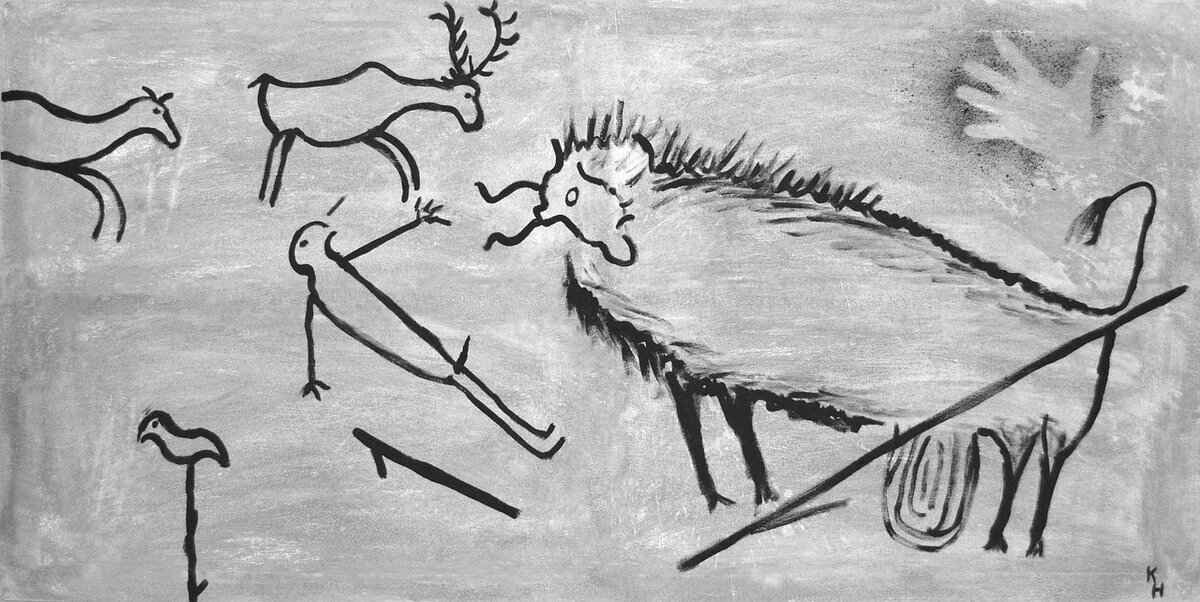Emma Stone’s performance in the film Aloha is a topic of much discussion, particularly regarding how her character, Allison Ng, adds layers of complexity to the narrative. This article delves into the nuances of her role and its impact on both the storyline and audience reception.
In Aloha, Emma Stone takes on the character of Allison Ng, a military contractor with a unique cultural heritage. This role is pivotal as it addresses themes of identity and cultural appreciation. Allison’s character acts as a lens through which the audience can explore the intricacies of personal and cultural identity, making her presence essential to the film’s narrative.
Emma Stone’s portrayal of Allison Ng received a mix of reviews, yet many critics acknowledged her ability to navigate the film’s emotional depth. Her performance brought a unique perspective that resonated with viewers, prompting discussions around the film’s themes and character dynamics. Stone’s dedication to her role helped elevate the film, even when it faced criticism for other elements.
Allison Ng embodies significant themes such as cultural identity and personal growth. Her journey throughout the film highlights the importance of understanding one’s roots while facing modern challenges. This duality makes her character vital to the film’s overarching message about the complexities of identity in a contemporary setting.
Aloha attempts to tackle the issue of cultural representation, with Allison Ng at the forefront of this conversation. Emma Stone’s portrayal raises critical questions about authenticity and the complexities surrounding cultural identity. By engaging with these themes, the film invites the audience to reflect on their perceptions of cultural narratives in Hollywood.
Audience reactions to Allison Ng were varied, with many appreciating the depth and relatability she brought to the role. Stone’s performance sparked essential conversations about representation in film and the nuances involved in portraying diverse characters. Her ability to connect with the audience on an emotional level contributed significantly to the film’s impact.
Emma Stone’s preparation for the role of Allison Ng involved extensive research into Hawaiian culture and the military environment. This commitment to authenticity not only added depth to her character but also enhanced the film’s credibility. By immersing herself in the cultural context, Stone was able to deliver a performance that resonated with both critics and audiences alike.
Emma Stone’s portrayal of Allison Ng offers valuable lessons about cultural sensitivity and the significance of representation in film. Her character encourages viewers to reflect on their understanding of identity and belonging, making her role not just a part of the narrative, but a catalyst for broader discussions on these critical themes.
Allison Ng’s interactions with other characters, particularly her mentor, showcase her growth and influence throughout the film. These relationships drive the narrative forward, illustrating how connections can shape individual journeys. Stone’s ability to portray these dynamics adds richness to the film’s emotional landscape.
While Aloha faced its share of criticism, Emma Stone’s role remains a significant milestone in her career. It demonstrates her versatility as an actress and her capacity to tackle complex characters. The film serves as a stepping stone in her growth within the industry, showcasing her ability to handle challenging roles that provoke thought and discussion.
Aloha,
Emma Stone delivers a captivating performance in the film Aloha, which has sparked significant discussions about her character and its implications within the narrative. This article delves into how her role adds depth to the film, exploring critical themes and audience reactions.
In Aloha, Emma Stone portrays Allison Ng, a military contractor with a rich cultural heritage. Her character embodies the film’s exploration of identity and cultural appreciation, serving as a crucial link between the story and its themes. Allison’s background offers a unique perspective on the challenges of reconciling personal identity with professional obligations.
Stone’s portrayal received mixed reviews, yet her performance as Allison Ng resonated with many viewers. Critics highlighted her ability to navigate the film’s emotional terrain, bringing authenticity and depth that elevated the overall narrative. Despite the film’s criticisms, Stone’s role was often cited as a standout, showcasing her talent and versatility.
Allison Ng’s character is pivotal in exploring themes of cultural identity and personal growth. Her journey emphasizes the significance of understanding one’s roots while adapting to contemporary challenges. This duality makes her character essential for conveying the film’s deeper messages about belonging and self-discovery.
The film attempts to address cultural representation, with Allison’s character at the forefront of this dialogue. Stone’s portrayal raises critical questions about authenticity and the complexities of cultural identity. By presenting a character who grapples with her heritage, the film encourages viewers to reflect on the nuances of representation in media.
Audience reactions to Allison Ng were varied, with many appreciating her depth and relatability. Stone’s performance sparked discussions about representation in Hollywood, highlighting the importance of diverse characters and the stories they tell. Viewers connected with Allison’s struggles, making her a memorable figure in the film.
Emma Stone’s preparation for the role of Allison Ng involved extensive research into Hawaiian culture and the military context. Her dedication to authenticity not only enhanced her character but also contributed to the film’s overall credibility and emotional weight. Stone’s commitment reflects a broader trend in Hollywood towards more responsible and nuanced portrayals of diverse characters.
Emma Stone’s portrayal of Allison Ng imparts valuable lessons about cultural sensitivity and the necessity of representation in film. Her character prompts audiences to consider their understanding of identity and belonging, encouraging a more inclusive dialogue surrounding these themes.
Allison Ng’s interactions with other characters, particularly her mentor, illustrate her growth and influence throughout the film. These relationships are pivotal in driving the narrative forward, showcasing how personal connections can shape individual journeys and highlight the importance of mentorship and guidance.
While Aloha faced its share of criticisms, Emma Stone’s role remains significant in her career trajectory. It exemplifies her versatility as an actress, allowing her to tackle complex characters that challenge societal norms. This role contributes to her growth in the industry, reinforcing her status as a talented and dynamic performer.
analyzing how her character contributes to the narrative and themes, while providing insights into the film’s reception and critical reviews.
Emma Stone’s performance in the film Aloha has sparked considerable discussion and analysis among audiences and critics alike. In this article, we will explore how her character, Allison Ng, adds depth to the film’s narrative and themes, while also providing insights into the film’s reception and critical reviews.
Emma Stone portrays Allison Ng, a military contractor with a diverse cultural background. Her character is pivotal as she serves as a bridge between the film’s exploration of identity and cultural appreciation. This complexity adds significant layers to the storyline, making her role essential in conveying the film’s messages.
Stone’s performance received mixed reviews, yet her portrayal of Allison Ng resonated with many viewers. Critics acknowledged her adeptness at navigating the film’s emotional landscape, highlighting her ability to bring authenticity to her character. This unique perspective contributed to the film’s overall impact, prompting audiences to engage more deeply with its themes.
Allison Ng embodies significant themes of cultural identity and personal growth. Her journey throughout the film emphasizes the importance of understanding one’s roots while facing modern challenges. This exploration makes her character vital to the film’s overarching message about belonging and self-discovery.
The film attempts to address cultural representation, with Allison’s character at the forefront of this discussion. Stone’s portrayal raises critical questions about authenticity and the complexities surrounding cultural identity in today’s world. This aspect of the film invites viewers to reflect on their perceptions and assumptions about different cultures.
Audience reactions to Allison Ng varied widely, with many viewers appreciating her depth and relatability. Stone’s performance ignited conversations about representation in Hollywood and the nuances involved in portraying diverse characters. This dialogue underscores the importance of authentic storytelling in film.
To authentically embody Allison Ng, Stone engaged in extensive research about Hawaiian culture and the military environment. Her dedication to understanding the cultural nuances added layers to her character, enhancing the film’s credibility and emotional weight. This preparation reflects her commitment to delivering a genuine performance that resonates with audiences.
Emma Stone’s portrayal of Allison Ng offers valuable lessons about cultural sensitivity and the significance of representation in film. Her character encourages viewers to reflect on their understanding of identity and belonging, highlighting the need for greater awareness and appreciation of diverse narratives in storytelling.
Allison Ng’s interactions with other characters, particularly her mentor, showcase her growth and influence throughout the film. These relationships drive the narrative forward, illustrating how connections can shape individual journeys. Her role emphasizes the importance of collaboration and understanding in overcoming challenges.
Despite facing criticism, Aloha holds a significant place in Emma Stone’s career. It demonstrates her versatility as an actress and her capacity to tackle complex characters, contributing to her growth within the industry. Stone’s performance in this film showcases her ability to engage with challenging themes, solidifying her status as a prominent figure in contemporary cinema.
What Role Does Emma Stone Play in Aloha?
Emma Stone delivers a captivating performance in the film Aloha, where she takes on the role of Allison Ng, a military contractor with a multifaceted cultural heritage. This character is not merely a supporting role; rather, she serves as a significant conduit through which the film explores deeper themes of identity and cultural appreciation. Stone’s portrayal adds layers of complexity to the storyline, making it a pivotal element of the film’s narrative.
Allison Ng is depicted as a character of mixed heritage, particularly highlighting her Asian-American background. This aspect of her identity is crucial as it allows the film to delve into the intricacies of cultural representation. Stone’s character navigates the challenges of being a military contractor while grappling with her cultural roots, thus embodying the film’s exploration of personal and collective identity.
Through Allison, the film addresses vital questions about what it means to belong to multiple cultures and how these identities intersect in a modern context. The character’s journey emphasizes the importance of understanding and embracing one’s heritage while also adapting to contemporary societal norms. This duality is essential in showcasing the complexities of cultural identity in today’s world.
Moreover, Allison Ng’s interactions with other characters in the film, particularly her mentor, play a significant role in her development. These relationships not only propel the narrative forward but also illustrate how connections can influence personal growth and understanding. The dynamics she shares with her peers highlight the film’s overarching message about the impact of cultural understanding and acceptance.
Despite the mixed reviews that Aloha received, many critics acknowledged that Emma Stone’s performance was a standout. Her ability to convey the emotional depth of Allison Ng resonated with audiences, as she effectively portrayed the character’s struggles and triumphs. Critics noted that her performance brought a unique perspective to the film, allowing viewers to engage with the narrative on a more profound level.
Furthermore, the film’s attempt to address cultural representation is underscored by Stone’s portrayal of Allison. The character raises important questions about authenticity and the complexities of cultural identity. As audiences navigate the landscape of Hollywood representation, Allison Ng’s character serves as a reminder of the importance of portraying diverse narratives with sensitivity and depth.
In terms of preparation for her role, Emma Stone committed herself to extensive research into Hawaiian culture and the military environment. This dedication not only enhanced her portrayal but also added an authentic layer to the character, contributing to the film’s overall credibility. Stone’s willingness to immerse herself in the cultural context reflects her commitment to delivering a performance that honors the complexities of her character’s background.
Allison Ng’s character also invites viewers to reflect on the broader implications of cultural sensitivity and representation in film. By embodying a character who grapples with her identity, Stone encourages audiences to consider their own understanding of belonging and the importance of embracing diverse perspectives. This message is particularly relevant in today’s globalized world, where cultural exchange and appreciation are more crucial than ever.
In summary, Emma Stone’s role as Allison Ng in Aloha is a significant contribution to the film’s narrative. Through her portrayal, Stone not only brings depth to the character but also sparks vital conversations about cultural identity and representation. As audiences engage with Allison’s journey, they are prompted to reflect on their own identities and the importance of cultural appreciation in a diverse society.
How Did Emma Stone’s Performance Impact Aloha’s Reception?
Emma Stone’s performance in Aloha has been a topic of discussion among film enthusiasts and critics alike. While the film itself received a mixture of reviews, Stone’s portrayal of Allison Ng stood out, providing a unique lens through which audiences could engage with the narrative. This article delves into how her performance impacted the film’s reception, highlighting both the praise and criticism it garnered.
Stone’s role as Allison Ng, a military contractor with a complex cultural background, was pivotal to the film’s narrative. Critics acknowledged her ability to navigate the emotional nuances of her character, bringing depth to a storyline that some felt was lacking. Her performance resonated with audiences, particularly those who appreciated the exploration of cultural identity and personal growth.
Despite the mixed reviews the film received overall, Stone’s portrayal was often highlighted as a strong point. Many reviewers noted that her character added layers of complexity to the film’s themes, particularly in relation to identity and cultural appreciation. This was especially significant given the backdrop of Hawaii, where the film is set, and the various cultural elements woven throughout the narrative.
- Cultural Identity: Allison Ng embodies the struggle of balancing her mixed heritage while navigating a predominantly Western environment.
- Personal Growth: Her character arc illustrates a journey of self-discovery and acceptance, which many viewers found relatable.
- Emotional Range: Stone’s ability to convey vulnerability and strength allowed audiences to connect with Allison on a deeper level.
Many critics praised Stone for her ability to bring authenticity to the role, which was crucial given the film’s intent to address cultural representation. Her performance sparked discussions about the importance of authenticity in casting and the portrayal of diverse characters in Hollywood.
Audience reactions varied widely. Some viewers expressed a deep appreciation for Allison Ng’s character, noting how her depth and relatability contributed positively to the film. Others, however, felt that the character’s development was overshadowed by the film’s broader narrative issues. This divergence in opinion highlights the complexities of audience engagement with cultural representation in cinema.
Stone’s performance has also been credited with prompting important conversations about representation and the nuances involved in portraying diverse backgrounds. Critics noted that her character served as a bridge, connecting viewers to the cultural richness of Hawaii while also addressing contemporary issues of identity.
In preparation for her role as Allison Ng, Emma Stone undertook extensive research into Hawaiian culture and the military environment depicted in the film. This dedication to authenticity not only enhanced her performance but also contributed to the film’s credibility. Stone’s commitment to understanding the cultural context of her character is evident in her portrayal, which adds emotional weight to the narrative.
Emma Stone’s portrayal of Allison Ng offers valuable lessons about cultural sensitivity and the importance of representation in film. Her character encourages viewers to reflect on their understanding of identity and belonging, prompting discussions about the complexities of cultural narratives in contemporary cinema.
In conclusion, while Aloha faced its share of criticism, Emma Stone’s performance as Allison Ng remains a significant aspect of the film. Her ability to convey the character’s emotional depth and cultural struggles not only enriched the storyline but also contributed to broader conversations about representation in Hollywood. Stone’s role exemplifies the impact an actor can have on a film’s reception and the importance of authentic storytelling.

What Are the Themes Explored Through Allison Ng?
In the film Aloha, Emma Stone’s character, Allison Ng, serves as a powerful representation of cultural identity and personal growth. Her journey is not just a subplot; it is a vital component that weaves through the film’s overarching themes, allowing audiences to engage with deeper questions about heritage and modernity.
Allison Ng’s character is a military contractor with a complex cultural background, which becomes a focal point in the narrative. Her mixed heritage highlights the struggles many face in reconciling their roots with contemporary life. This duality is emphasized through her interactions with other characters, showcasing the challenges of cultural authenticity in a rapidly evolving society.
Throughout the film, Allison undergoes significant personal growth. Initially portrayed as unsure of her identity, she gradually learns to embrace her background. This transformation is crucial as it reflects the journey many individuals embark on when seeking to understand themselves amidst external pressures. Her evolution underscores the importance of self-acceptance and the courage to confront one’s past.
Allison’s character navigates various modern challenges, including societal expectations and professional obstacles. These experiences resonate with viewers, as they mirror real-life struggles faced by many today. Her ability to balance her career ambitions with her cultural identity serves as a reminder of the complexities involved in modern life.
Family heritage is a significant theme in Allison’s journey. The film explores how her background influences her decisions and relationships. Through flashbacks and conversations with family members, viewers gain insight into her upbringing, which shapes her worldview. This exploration of heritage emphasizes the idea that understanding one’s past can be a source of strength and guidance in the present.
Allison Ng’s character has sparked essential conversations about cultural representation in Hollywood. Critics and audiences alike have noted the importance of portraying characters with diverse backgrounds authentically. Emma Stone’s portrayal raises questions about who gets to tell these stories and the responsibility that comes with representing different cultures on screen.
Allison Ng’s journey is pivotal to the film’s message about understanding and appreciating cultural diversity. Her character encourages viewers to reflect on their identities and the importance of embracing one’s roots. This message resonates strongly, particularly in a world where cultural boundaries are often blurred. The film invites audiences to consider how they navigate their own cultural identities.
Belonging is a central theme in Allison’s narrative. Her struggles to find her place in both her professional and personal life highlight the universal quest for acceptance. As she learns to embrace her identity, she also helps others around her to do the same, fostering a sense of community and connection. This aspect of her character demonstrates how individual growth can contribute to broader societal change.
In summary, Allison Ng’s character in Aloha serves as a crucial lens through which the film explores themes of cultural identity, personal growth, and belonging. Her journey not only enhances the narrative but also invites audiences to engage in meaningful discussions about their own identities and the importance of representation in media.
How Does Cultural Representation Play a Role?
The film Aloha attempts to navigate the complex waters of cultural representation, and at the heart of this discussion is the character Allison Ng, portrayed by Emma Stone. This character embodies the intricate relationship between identity and cultural appreciation, raising significant questions about authenticity in a modern context.
Allison Ng is depicted as a military contractor with a diverse cultural heritage, which serves as a narrative device to explore the themes of identity and belonging. Her character is not just a participant in the story; she is a vital link that connects various cultural perspectives. By portraying a character with a mixed background, the film invites viewers to reflect on the complexities of cultural identity in today’s society.
Emma Stone’s portrayal of Allison Ng has sparked discussions about the authenticity of cultural representation in Hollywood. Critics have noted that her performance, while met with mixed reviews, brings a unique perspective that resonates with many viewers. Stone’s ability to convey the emotional nuances of her character adds depth to the film, prompting audiences to engage with the themes of cultural identity and personal growth.
- Cultural Identity: Allison’s journey emphasizes the importance of understanding one’s roots while navigating the challenges of contemporary life.
- Personal Growth: Her character evolves throughout the film, showcasing how experiences shape identity.
- Authenticity: The film raises questions about what it means to be authentic in a world where cultural backgrounds are often oversimplified.
Allison Ng serves as a counter-narrative to stereotypical portrayals of Asian characters in Hollywood. By presenting a multi-dimensional character, the film challenges the audience to reconsider their perceptions of cultural representation. Stone’s performance emphasizes the need for more nuanced portrayals of individuals from diverse backgrounds, allowing for a richer understanding of cultural dynamics.
Audience reactions to Allison Ng have been varied, with many viewers appreciating her depth and relatability. Stone’s portrayal has sparked conversations about representation in film, highlighting the importance of diverse characters in mainstream media. Her character resonates with those who have experienced similar struggles with identity, making her a relatable figure for many.
In preparation for her role as Allison Ng, Emma Stone engaged in extensive research about Hawaiian culture and the military context of the film. This commitment to authenticity not only enhanced her performance but also added layers of credibility to the character. By immersing herself in the cultural nuances, Stone was able to portray Allison with a depth that reflects the complexities of her background.
Allison Ng’s character offers valuable lessons about cultural sensitivity and the significance of representation in film. Her journey encourages viewers to reflect on their understanding of identity and belonging, emphasizing the need for empathy and awareness in a culturally diverse world. The film serves as a reminder that every individual’s story is unique, shaped by their experiences and backgrounds.
Allison’s interactions with other characters, particularly her mentor, illustrate her growth and the impact she has on those around her. Her relationships drive the narrative forward, showcasing how connections can shape individual journeys and foster understanding across cultural divides. This dynamic adds richness to the film, reinforcing the importance of dialogue in addressing cultural issues.
While Aloha faced its share of criticism, Emma Stone’s role as Allison Ng remains a significant part of her career. It showcases her versatility as an actress and her ability to tackle complex characters, contributing to her growth in the industry. The film’s exploration of cultural representation through Allison’s character highlights the ongoing conversation about diversity in Hollywood, making it an important piece in Stone’s filmography.
What Are the Audience Reactions to Allison’s Character?
In the film Aloha, Emma Stone’s portrayal of Allison Ng has stirred a range of audience reactions, reflecting the complexities of her character and the broader themes of the movie. Many viewers found themselves drawn to Allison’s depth and relatability, as she navigates her identity in a world filled with expectations and cultural nuances.
Allison Ng’s character resonates with audiences for several reasons. Her struggles with identity and belonging mirror the experiences of many individuals today. As a military contractor with a diverse cultural background, she embodies the challenges of reconciling personal heritage with professional demands. This relatable journey allows viewers to see parts of themselves in her character, fostering a sense of connection.
Emma Stone’s performance sparked significant conversations about representation in Hollywood. Many critics and audiences alike noted that her portrayal of a character with a mixed cultural background is a step forward in an industry often criticized for its lack of diversity. This portrayal raises important questions about the authenticity of representation and the responsibility of filmmakers to accurately depict diverse characters.
Audience reactions highlighted the nuances of cultural identity that Allison Ng embodies. Some viewers praised the film for attempting to address these complexities, while others felt that the execution fell short. The discussions revolving around Allison’s character often focused on the importance of understanding and respecting cultural backgrounds, which is essential in today’s global society.
While many viewers appreciated Stone’s depth, others critiqued the film’s overall handling of cultural themes. Some critics argued that the character’s development was overshadowed by the film’s broader narrative, leading to a sense of disconnection for certain audience members. This mixed reception underscores the challenges filmmakers face when trying to balance storytelling with cultural representation.
Allison’s journey in Aloha serves as a reflection of broader themes such as cultural appreciation and personal growth. Her character’s struggles and triumphs highlight the importance of understanding one’s roots while adapting to modern life. This duality makes her role not only crucial to the film’s narrative but also a powerful commentary on the experiences of many individuals navigating similar paths.
The varied responses to Allison Ng reveal much about contemporary audience expectations regarding representation in film. Many viewers are increasingly aware of the need for authentic portrayals of diverse characters, leading to a demand for more thoughtful and nuanced storytelling. This shift in audience perspective encourages filmmakers to prioritize authenticity and depth in their character development.
Allison’s interactions with other characters significantly influence the film’s narrative. Her relationships, particularly with her mentor and love interest, are pivotal in driving the story forward. These connections illustrate how understanding and empathy can shape individual journeys, emphasizing the importance of community and support in personal growth.
In conclusion, Emma Stone’s portrayal of Allison Ng in Aloha has sparked a multitude of audience reactions, reflecting the film’s exploration of cultural identity and representation. As discussions continue around the importance of diverse narratives in Hollywood, Allison’s character remains a vital part of that conversation, inviting viewers to reflect on their own experiences and understanding of identity.
How Did Emma Stone Prepare for Her Role?
In the film Aloha, Emma Stone’s portrayal of Allison Ng is a testament to her dedication and skill as an actress. Her preparation for this role was not merely about memorizing lines; it involved a deep dive into the intricate layers of Hawaiian culture and the military environment that shaped her character. This commitment to authenticity significantly enriched the film, allowing audiences to connect with Allison on a deeper emotional level.
Stone’s preparation began with extensive research into the Hawaiian culture. She sought to understand the nuances of the local customs, traditions, and the historical context surrounding Hawaii’s relationship with the military. By immersing herself in these aspects, she aimed to portray Allison Ng with the respect and authenticity that the character deserved.
Recognizing the importance of cultural representation, Stone approached her role with a sense of responsibility. She consulted with cultural experts and community members to ensure that her portrayal was not only accurate but also respectful. This dedication to cultural sensitivity is crucial in an industry often criticized for misrepresenting diverse backgrounds.
Stone’s thorough preparation added depth to Allison Ng, transforming her from a mere character into a relatable figure grappling with her identity. The layers of authenticity she brought to the role allowed for a more nuanced portrayal, enabling audiences to empathize with Allison’s struggles and triumphs. This depth was pivotal in enhancing the film’s emotional weight.
Emma Stone’s own experiences as an actress navigating the complexities of identity and acceptance resonated with her portrayal of Allison. This personal connection allowed her to infuse the character with genuine emotion, making Allison’s journey feel authentic and relatable. Stone’s ability to draw from her own life experiences added a layer of realism that enriched the narrative.
- Workshops and Training: Stone participated in workshops focused on Hawaiian culture and military life to gain firsthand insights.
- Dialogue Coaching: To accurately capture the linguistic nuances, she worked with coaches to master the local dialect.
- Character Journals: Stone maintained character journals to explore Allison’s backstory and emotional landscape, aiding her in developing a multi-dimensional character.
The dedication Stone showed in preparing for her role did not go unnoticed. Critics highlighted her performance as a standout aspect of Aloha, noting that her commitment to authenticity added layers to the film’s overall message. While the film received mixed reviews, Stone’s portrayal sparked meaningful conversations about representation and cultural appreciation.
Emma Stone’s approach to her role in Aloha serves as a powerful reminder of the importance of thorough preparation in acting. Her commitment to authenticity and cultural sensitivity not only enhanced her performance but also contributed to a broader dialogue about representation in film. This highlights the responsibility actors have in portraying diverse characters and the impact their performances can have on audience perceptions.
What Lessons Can Be Learned from Emma Stone’s Role?
Emma Stone’s portrayal of Allison Ng in the film Aloha serves as a pivotal element that invites audiences to engage in meaningful conversations about cultural sensitivity and representation. This character not only enhances the narrative but also encourages viewers to reflect deeply on their own perceptions of identity and belonging.
Through her character, Stone provides a platform for discussing the significance of cultural representation in media. Allison Ng, who is portrayed as a military contractor with a rich Hawaiian heritage, embodies the complexities of navigating multiple identities. This duality prompts viewers to confront their own understanding of what it means to belong to a culture while existing in a broader societal context.
One of the most important lessons from Allison’s character is the necessity of cultural sensitivity. In a world where cultural appropriation is a pressing issue, Stone’s performance highlights the importance of respecting and honoring different backgrounds. By portraying a character with a mixed heritage, she emphasizes that identity is not a monolithic experience; rather, it is multifaceted and shaped by various influences.
Additionally, Allison’s journey throughout the film illustrates the theme of personal growth. As she grapples with her identity, viewers witness her development from a somewhat uncertain individual to someone who embraces her roots and recognizes their importance. This transformation serves as a reminder that understanding one’s heritage can lead to greater self-awareness and confidence.
- Cultural Reflection: Allison’s character encourages audiences to reflect on their own cultural backgrounds and the ways in which they engage with them.
- Representation Matters: The film’s attempt to address issues of representation through Allison’s character sparks discussions on the authenticity of portrayals in Hollywood.
- Empathy and Understanding: By showcasing Allison’s struggles and triumphs, the film fosters empathy among viewers, encouraging them to consider perspectives outside their own experiences.
Moreover, Emma Stone’s performance invites discussions about the representation of diverse characters in the film industry. Her role as a character with a rich cultural background opens the door for conversations about the importance of authentic casting and storytelling. Critics and audiences alike have noted that representation in film is not merely about diversity but about the depth and authenticity of the characters portrayed.
Allison Ng’s character also serves as a catalyst for dialogue among other characters in the film, illustrating how cultural identity influences relationships and interactions. Her connections with her colleagues and mentors highlight how understanding and appreciating diverse backgrounds can lead to stronger bonds and collaborative efforts.
In conclusion, Emma Stone’s portrayal of Allison Ng in Aloha provides valuable lessons about cultural sensitivity, personal growth, and the importance of representation in film. The character’s journey encourages viewers to reflect on their own identities and the significance of understanding and honoring diverse cultures. As discussions around these themes continue to evolve, Stone’s performance remains a crucial part of the conversation, reminding us that film can be a powerful medium for fostering understanding and empathy.
What Impact Does Allison Ng Have on Other Characters?
Allison Ng, portrayed by Emma Stone in the film Aloha, is a character that significantly influences the lives of those around her. Through her interactions, especially with her mentor, the audience witnesses a compelling journey of growth and transformation. This section delves into the impact Allison has on other characters, showcasing how her relationships propel the narrative and enhance the film’s thematic depth.
Allison’s relationship with her mentor is pivotal in Aloha. As a military contractor, she is not only seeking to prove herself in a male-dominated field but also grappling with her identity. Her mentor, who embodies experience and wisdom, provides guidance but is also challenged by Allison’s fresh perspectives. This dynamic creates a mutual growth scenario where both characters evolve through their interactions.
Allison’s connections with her peers further illustrate her influence. She often finds herself in situations where she must advocate for her beliefs and cultural background. This advocacy not only shapes her character but also encourages her peers to confront their own biases and assumptions. Through these interactions, the film highlights the significance of collaborative growth and the importance of diverse voices in shaping a collective narrative.
The relationships Allison builds are essential in driving the narrative forward. Each character she interacts with provides unique challenges and opportunities for growth. For instance, her friendship with a fellow contractor allows for moments of vulnerability and honesty, showcasing how trust and support can lead to personal development. These connections serve as a vehicle for exploring broader themes of identity and belonging.
Through her relationships, Allison teaches valuable lessons about the importance of understanding and respecting different perspectives. She embodies the idea that personal journeys are often intertwined with those of others. This interconnectedness is crucial in the film’s exploration of cultural identity and the challenges individuals face when navigating their paths. By fostering open dialogue and empathy, Allison encourages both her mentor and peers to embrace complexity in their relationships.
Allison’s growth is not just personal; it reflects broader societal themes. Her journey emphasizes the importance of cultural appreciation and the impact of mentorship. As she learns from her mentor, she also teaches him to see the world through a different lens. This reciprocal relationship underscores the film’s message that growth often occurs when individuals are willing to listen and learn from one another.
In summary, Allison Ng’s character serves as a catalyst for change within Aloha. Her interactions with others reveal the profound impact of relationships on personal growth and the narrative as a whole. By showcasing her influence on her mentor and peers, the film illustrates how connections can shape individual journeys, making Allison a vital character in its exploration of identity and cultural dynamics.

What Is the Overall Significance of Aloha in Emma Stone’s Career?
Emma Stone’s role in Aloha holds a unique place in her filmography, showcasing her ability to tackle complex characters while navigating the challenges of cultural representation. This film, released in 2015, stirred significant discussion in Hollywood, making it a pivotal moment in Stone’s career.
In Aloha, Emma Stone plays Allison Ng, a military contractor of mixed heritage. This character is significant not only for her personal journey but also for the broader themes of identity and cultural appreciation that the film seeks to explore. Stone’s portrayal invites audiences to engage with the intricacies of her character’s background, allowing for a deeper understanding of cultural identity.
While Aloha received mixed reviews from critics, it undeniably contributed to Emma Stone’s evolution as an actress. The film challenged her to step outside her comfort zone, as she navigated a character that required a nuanced understanding of cultural dynamics. This experience has been instrumental in shaping her subsequent roles, demonstrating her versatility and commitment to authentic representation.
Allison Ng’s character embodies themes of cultural identity and personal growth. Her journey emphasizes the significance of understanding one’s roots while facing modern societal challenges. Through her interactions with other characters, Stone illustrates how cultural heritage shapes individual experiences, making her role vital to the film’s overarching message.
Emma Stone’s dedication to authenticity in her portrayal of Allison Ng was evident in her extensive research into Hawaiian culture and the military context of the film. By immersing herself in the cultural nuances, Stone was able to bring depth to her character, enhancing the film’s credibility and emotional impact. This preparation reflects her commitment to delivering a performance that resonates with audiences and honors the complexities of cultural representation.
Audience reactions to Aloha were varied, with many viewers appreciating the depth and relatability of Allison Ng. Stone’s performance sparked important conversations about representation in Hollywood, highlighting the need for diverse narratives and authentic portrayals of characters from different backgrounds. This dialogue has continued to influence the film industry, emphasizing the importance of inclusivity in storytelling.
Emma Stone’s portrayal of Allison Ng offers valuable insights into the importance of cultural sensitivity and representation in film. Her character encourages viewers to reflect on their understanding of identity and belonging, prompting discussions about the complexities of cultural narratives in contemporary cinema. This role serves as a reminder of the responsibility filmmakers have in portraying diverse experiences accurately and respectfully.
Allison Ng’s interactions with other characters, particularly her mentor and love interests, showcase her growth and the influence she has on the narrative. Her relationships drive the story forward, illustrating how personal connections can shape individual journeys. Stone’s ability to portray these dynamics adds layers to the film, making Allison a central figure in the unfolding drama.
While Aloha faced criticism for various reasons, Emma Stone’s role remains significant in her career trajectory. It highlights her versatility as an actress and her willingness to engage with complex characters that challenge societal norms. This film marks a crucial point in her growth, paving the way for future roles that demand depth and authenticity.
Aloha
Emma Stone’s performance in the film has sparked considerable discussion among audiences and critics alike. This article delves into her role as Allison Ng, examining how her character adds depth to the film’s narrative and themes, while also exploring the reception of the film itself.
In , Emma Stone plays Allison Ng, a military contractor with a Hawaiian heritage. This character serves as a critical link between the film’s themes of identity and cultural appreciation. Allison’s journey is not just about her professional life; it also reflects her struggle with her cultural identity, making her role essential to the storyline.
Stone’s portrayal received mixed reviews, yet her performance resonated with many viewers. Critics praised her ability to navigate the film’s emotional landscape, bringing a unique perspective to the character. This complexity added a layer of authenticity that audiences found relatable, even amidst the film’s overall criticism.
Allison Ng embodies significant themes such as cultural identity and personal growth. Her character’s evolution throughout the film emphasizes the importance of understanding one’s roots while facing contemporary challenges. This duality makes her role vital to the film’s overarching message.
The film attempts to address the critical issue of cultural representation, with Allison’s character at the forefront of this discussion. Emma Stone’s portrayal raises essential questions about authenticity and the complexities of cultural identity in today’s society. The film’s approach to representation invites audiences to reflect on their perceptions of different cultures.
Audience reactions to Allison Ng have been varied. Many viewers have appreciated the depth and relatability of her character. Stone’s performance has ignited conversations about representation in Hollywood, highlighting the nuances involved in portraying diverse characters. This dialogue is crucial in an industry that continues to evolve.
Emma Stone undertook extensive research to prepare for her role as Allison Ng. This included studying Hawaiian culture and the military environment, ensuring her portrayal was authentic. Her commitment to understanding the cultural context added layers to Allison’s character, enhancing the film’s credibility and emotional impact.
Emma Stone’s portrayal of Allison Ng offers valuable lessons about cultural sensitivity and the importance of representation in film. Her character encourages viewers to reflect on their understanding of identity and belonging, making it a significant aspect of the film’s narrative.
Allison Ng’s interactions with other characters, particularly her mentor, highlight her growth and influence throughout the film. These relationships are pivotal in driving the narrative forward, illustrating how personal connections can shape individual journeys and foster development.
While faced its share of criticism, Emma Stone’s role remains significant in her career trajectory. It showcases her versatility as an actress and her ability to tackle complex characters. This experience contributes to her growth in the industry, paving the way for future roles that challenge her as an artist.
faced criticism, Emma Stone’s role remains significant in her career. It demonstrates her versatility as an actress and her ability to tackle complex characters, contributing to her growth in the industry.
Emma Stone’s role in the film Aloha has sparked considerable discussion, particularly regarding her character’s significance and the impact of her performance. Despite facing criticism, Stone’s portrayal of Allison Ng is a testament to her versatility as an actress and her ability to navigate complex characters. This article delves into the various aspects of her role and its implications for her career.
In Aloha, Emma Stone plays Allison Ng, a military contractor with a rich cultural background. Her character serves as a bridge between the film’s themes of identity and cultural appreciation, adding complexity to the storyline. Allison’s mixed heritage is central to her character, allowing the film to explore important themes surrounding cultural identity.
Stone’s performance received mixed reviews; however, her portrayal of Allison Ng resonated with many viewers. Critics acknowledged her ability to effectively navigate the film’s emotional landscape, bringing depth to a character that could have easily been one-dimensional. This performance has contributed to ongoing discussions about representation in Hollywood.
Allison Ng embodies themes of cultural identity and personal growth. Her journey highlights the importance of understanding one’s roots while navigating modern challenges, making her role vital to the film’s message. The film encourages viewers to reflect on their own identities and the significance of their backgrounds.
The film attempts to address cultural representation, with Allison’s character at the forefront of this discussion. Stone’s portrayal raises questions about authenticity and the complexities of cultural identity in a contemporary setting. The character’s mixed heritage prompts viewers to consider the implications of representation in media.
Audience reactions to Allison Ng varied, with many appreciating her depth and relatability. Stone’s performance sparked conversations about representation in Hollywood and the nuances of portraying diverse characters. This dialogue emphasizes the need for more authentic representations of various cultures in film.
Stone’s preparation for the role involved extensive research into Hawaiian culture and the military environment. Her commitment to authenticity added layers to Allison Ng, enhancing the film’s credibility and emotional weight. This dedication showcases Stone’s professionalism and her desire to accurately portray a character with a rich cultural background.
Emma Stone’s portrayal of Allison Ng offers valuable lessons about cultural sensitivity and the importance of representation in film. Her character encourages viewers to reflect on their understanding of identity and belonging, highlighting the need for empathy and awareness in a diverse world.
Allison Ng’s interactions with other characters, especially her mentor, showcase her growth and influence. Her relationships drive the narrative forward, illustrating how connections can shape individual journeys. This dynamic adds depth to the film and emphasizes the importance of community and support.
While Aloha faced criticism, Emma Stone’s role remains significant in her career. It demonstrates her versatility as an actress and her ability to tackle complex characters. This film contributes to her growth in the industry, showcasing her range and commitment to her craft.
Frequently Asked Questions
- What is the significance of Emma Stone’s role in Aloha?
Emma Stone’s portrayal of Allison Ng adds significant depth to the film, as her character embodies themes of cultural identity and personal growth. This makes her a crucial part of the narrative, helping to explore complex issues of belonging and representation.
- How did audiences react to Allison Ng’s character?
Audience reactions were mixed, but many found Allison Ng to be relatable and engaging. Stone’s performance sparked important conversations about cultural representation in Hollywood, highlighting the need for authenticity in character portrayals.
- What preparation did Emma Stone undertake for her role?
To authentically portray Allison Ng, Emma Stone engaged in extensive research about Hawaiian culture and the military context of the film. This commitment to understanding her character’s background added layers of authenticity and emotional depth to her performance.
- What lessons does Emma Stone’s role convey?
Emma Stone’s performance encourages viewers to reflect on cultural sensitivity and the importance of representation in film. Through Allison Ng’s journey, audiences are prompted to consider their own identities and the complexities of cultural appreciation.














